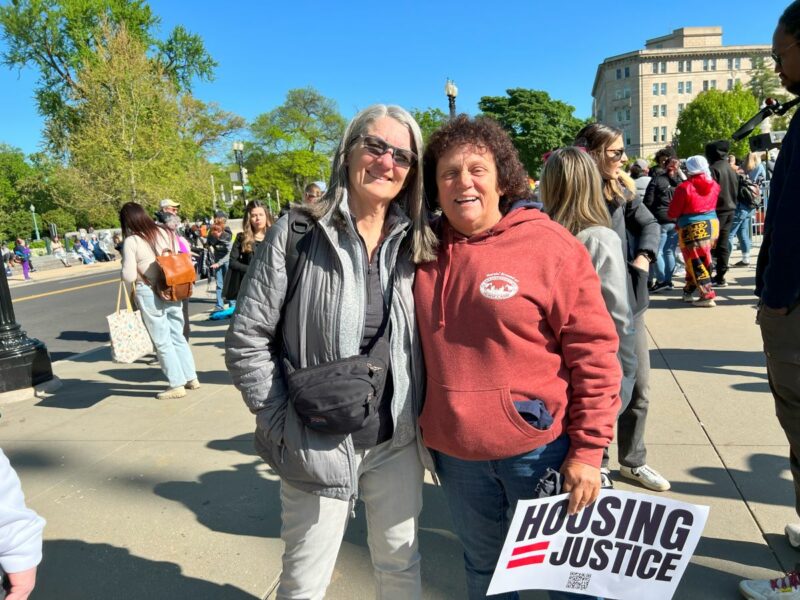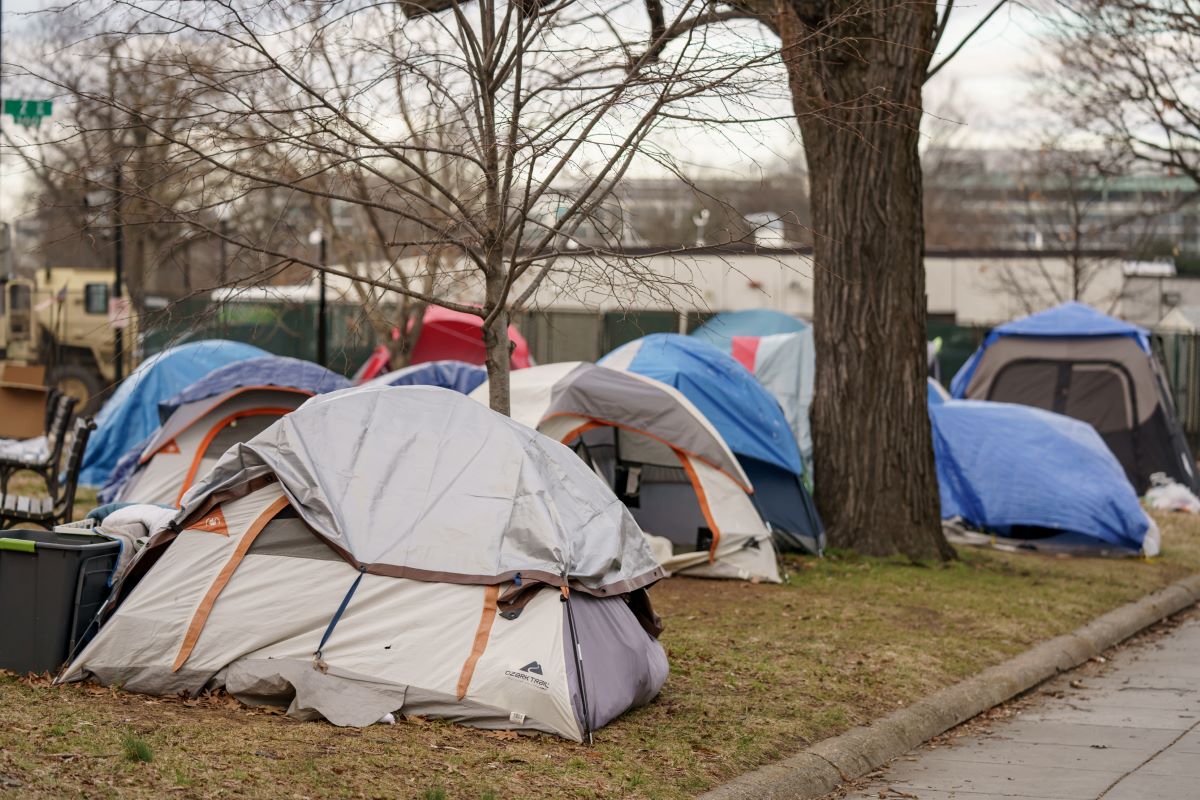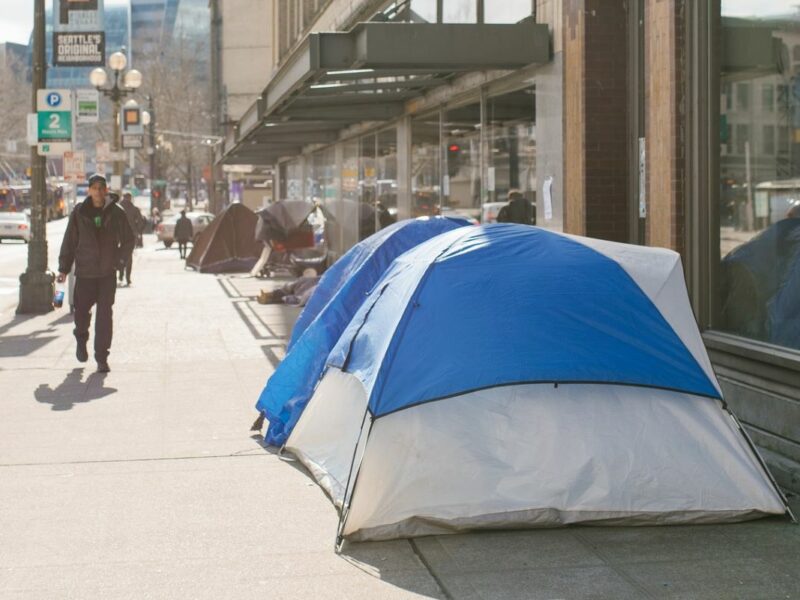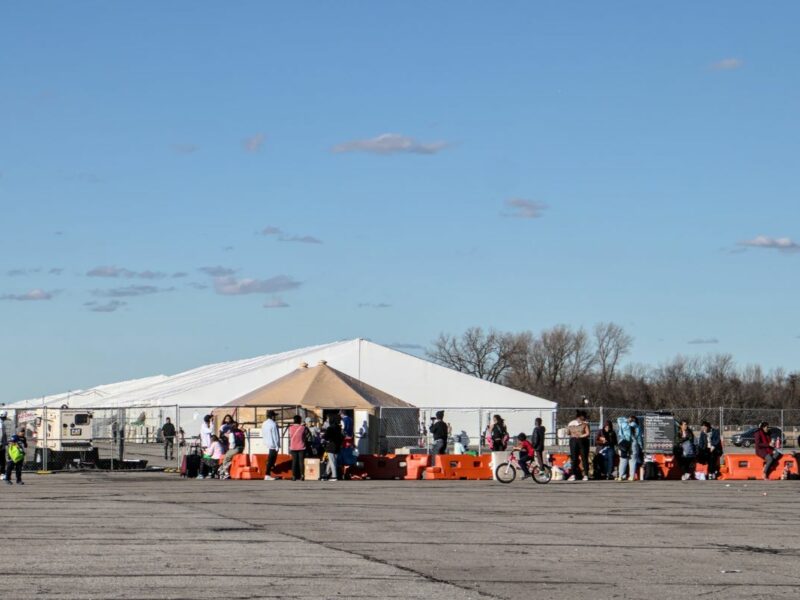The final deal Congress negotiated over raising the debt ceiling could be disastrous for homeless people and people at risk of experiencing homelessness, advocates warn.
At issue is the legislation passed by the House of Representatives that would reduce almost all non-defense spending items, including homelessness and affordable housing programs. The legislation would cap this spending at 2022 levels and would not allow spending to be raised by more than 1% for each of the next ten years.
That spending increase would also not account for inflation, most recently measured at 4% in May.
“To mitigate harm, Congress must take every action possible to prevent tens of thousands of the lowest-income families losing their housing assistance,” National Low Income Housing Coalition CEO Diane Yentel said in a statement. “If this funding deal holds and rental assistance is cut, families will face dramatic rent increases, putting them at higher risk of eviction and, in the worst cases, homelessness.”
A ‘Lost Decade’ for Homeless Service Providers
Each year, Congress negotiates raising the debt limit, or the amount of money the federal government can borrow to meet its financial obligations. It has been raised numerous times under both Republican and Democrat presidential administrations.
Advocates with the National Alliance to End Homelessness say the debt ceiling deal struck in 2011 was particularly impactful. Former President Barack Obama agreed to sign a law called the Budget Control Act, which imposed similar spending caps for the next decade, in exchange for Republican support for raising the debt ceiling.
That decision essentially created a “lost decade” for homeless service providers because it cut funding from discretionary programs such as housing vouchers and rental assistance, NAEH said.
“Although providers and systems leaders continued their life-saving work each day, they were forced to do so without resources scaled to the growing need across this nation,” NAEH CEO Ann Oliva said in a statement. “We live with the consequences of this lack of investment to this very day.”
HUD Funding Cuts Will Impact Hundreds of Thousands of Struggling Americans
One aspect of the deal that advocates are concerned about is funding for the Department of Housing and Urban Development, which is responsible for implementing many housing stability and homelessness reduction programs. In March, Secretary Marcia Fudge said that the deal could result in as many as 350,000 families losing their housing choice vouchers, another 87,000 people losing their rental assistance, and another 54,000 unhoused people would lose their support.
“Cuts on this scale would have very real and damaging impacts on our families, our communities, our economy, and our competitiveness—undermining a broad range of critical services the American people rely on in their everyday lives,” Fudge wrote.
Congressional Republicans have pushed back against the criticism of the debt deal. Sen. J.D. Vance from Ohio told Insider that HUD has become “bloated” and needs to reduce spending to control inflation.
“A large share of the HUD budget, I think, actually could be cut and could be cut in a way that preserves housing assistance for needy families,” Vance said.
Another aspect that advocates are worried about is the additional work requirements attached to public benefits like food stamps and welfare. For example, people who need food stamps must work at least 20 hours per week, according to the deal.
“Bottom line, this agreement is going to increase hunger,” Christina Wong, public policy and advocacy director at Northwest Harvest, a nonprofit that supports food banks in Washington state, told NPR affiliate KUOW. “So for no fault of your own, your manager changes the number of hours you have that week, if you’re not able to report 20 hours per week of work, then you’re in jeopardy of losing your SNAP benefits.”
How You Can Help
The pandemic proved that we need to rethink housing in the United States. It also showed that many programs designed to address homelessness are rooted in law enforcement rather than social services.
Tell your representatives you support revamping how your city addresses homelessness. We must focus on compassionate solutions, the first step to ending homelessness.











